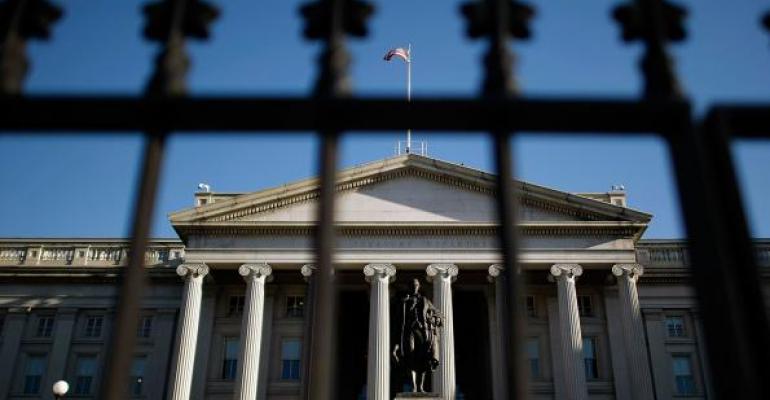(Bloomberg) -- Blank-check companies have taken an epic battering, but for patient investors, the collapse creates a chance to make some easy money from a quirk in the structure of these vehicles: their holdings of Treasury bills.
By one reckoning, scooping up shares of special-purpose acquisition companies that are trading at a discount to their cash in trust could earn the buyers about $3.45 billion, according to data compiled by Chicago-based SPAC Research.
It’s possible because SPACs, which raise money from an initial offering to fund a future takeover bid, must hold the money in risk-free Treasury bills until they complete a merger. If shareholders don’t like the eventual target -- or if a SPAC fails to find anything by a set deadline -- investors can redeem their shares for cash at the IPO price, plus any interest earned.
With 717 active blank checks either looking for deals or on track to complete them, and more than 600 trading at discounts, investors who buy at the depressed prices could earn annualized returns averaging 3.6%, according to data from Accelerate Financial Technologies Inc. Some of the upsides could run as high as 21% annualized.
Read more: Awful SPAC Returns Mean More Frustration for Blank-Check Firms
It’s a “phenomenal opportunity for fixed-income investors,” according to Julian Klymochko, the chief investment officer at Accelerate, which runs a SPAC arbitrage exchange-traded fund that’s taking advantage of the sector’s turmoil.
“SPAC arbitrage allows investors to generate yield in the mid-single-digit range with minimal risk,” Klymochko said in an interview. What’s more, “if the market turns around in terms of sentiment, those single-digit returns can become double-digit returns.”
Nearby Deadlines
Screaming Eagle Acquisition Corp., a SPAC led by long-time Hollywood executive and serial sponsor Harry Sloan, is among the stocks that Klymochko likes. The SPAC trades at $9.74, representing potential paper gains of 26 cents a share ahead of a January 2024 deadline. Mountain Crest Acquisition Corp. III and Digital Health Acquisition Corp. are among SPACs that offer a smaller payout with closer deadlines. Mountain Crest trades at just $9.85 while Digital Health offers about 14-cent payout for holding on into November.
A sweetener comes from blank-check firms that deliberately over-fund accounts to attract investors. Denali Capital Acquisition Corp., one of the newest SPACs to debut on the U.S. market, put $10.20 a share in its trust account, meaning investors that bought at the $10 IPO price could hold onto shares and elect to redeem them for the $10.20 by the time a deal is set to close, or when the company’s one-year deadline to buy something expires.
Read more: SPAC-Backed Stocks Find Few Takers Even After Enduring 60% Rout
Advocates of the buy-to-redeem strategy say not much can go wrong outside of tying up cash in SPACs that remain months away from a merger or their expiration date. And with investors worried about war, rising interest rates or a potential recession, the tactic could be used as an alternative to bonds and other passive investments.
As of April 4, it would cost roughly $187.5 billion to buy all shares and units of SPACs trading below their cash held in Treasuries, the SPAC Research data show. With the median SPAC deadline roughly 10 months away, that would produce a 3.6% annualized return, according to Accelerate. This would beat alternatives over a similar span such as Treasury bills maturing in March 2023, which are yielding less than half as much.
Extra Interest
SPAC Research’s $3.45 billion tally of cash hoards doesn’t count any potential future interest earnings on trust accounts that will accrue at current Treasury interest rates between now and each SPAC’s deadline.
The opportunity stands out in a sector industry that’s otherwise past its prime. The IPOX SPAC Index is down 40% from a February 2021 peak, compared with a 13% rise for the S&P 500 Index. Meanwhile, the market for new blank-check companies is closing as investors and banks weigh plans for new, tighter rules from the U.S. Securities and Exchange Commission. Only two SPACs have priced an IPO in the U.S. April.
“We expect new SPAC IPOs to come in drips and drabs,” Klymochko said. “But all signs are pointing to an oversaturated market.”





